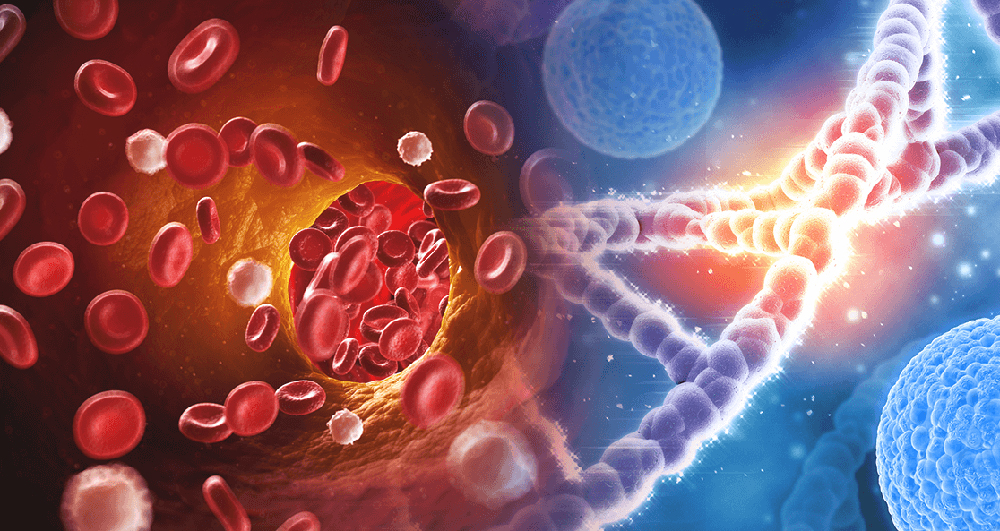On November 3, the Institute of Clinical and Economic Review (ICER) announced that, after a cost-benefit analysis, it assessed the price ceiling of Roctavian (valoctocogene roxaparvovec), a gene therapy for hemophilia A developed by BioMarin, at approximately $1.9 million; uniQure and CSL Behring’s hemophilia B gene therapy etranacogene dezaparvovec has a price ceiling of about $2.9 million.
Hemophilia A is a hereditary disorder caused by coagulation dysfunction due to coagulation factor VIII (FVIII) deficiency, and it is also the most common type of hemophilia. Currently, the standard treatment for hemophilia A is 2–3 weekly prophylactic intravenous infusions of FVIII, with a total of approximately 104–183 injections per year, and the burden of treatment is self-evident. Even with this prophylactic regimen, patients are still at risk of spontaneous bleeding.
Hemophilia B is a hereditary disease caused by coagulation dysfunction caused by coagulation factor IX (FIX) deficiency. The most common treatment for hemophilia B is intravenous injection of coagulation factor IX several times a week to maintain a normal level of FIX. However, long-term blood transfusion has many side effects and also brings a great financial burden to patients and their families.
Almost all of the pricing bases for both hemophilia gene therapies come from the cost savings of hemophilia patients no longer needing long-term intravenous clotting factors, ICER noted.
Despite relatively high benchmarks set by the U.S. drug pricing regulator, it remains in doubt about the duration of effects of the gene therapies Roctavian and etranacogene dezaparvovec.
ICER Chief Medical Officer David Rind said: “New gene therapies for hemophilia may provide patients with a ‘cure’ effect for at least a period of time, but the duration of this ‘cure’ and the safety of the treatment remain important not. certainty.”
Hemophilia A Gene Therapy Roctavian
Roctavian is a gene therapy that uses AAV5 viral vectors to deliver FVIII transgenes. The advantage of this therapy is that the gene expressing FVIII can be obtained with only one treatment, so long-term prophylactic coagulation factor injections are no longer required.
The road to the market for Roctavian therapy can be described as bumpy. BioMarin submitted applications for Roctavian therapy to the EMA and FDA in 2019, but was rejected by the FDA in August 2020. In November of the same year, BioMarin withdrew its European marketing application for the therapy.
In January 2021, BioMarin announced positive data for a 1-year follow-up of Roctavian therapy and submitted a marketing application to the EU again in June. On August 24, the European Union approved the conditional listing of Roctavian gene therapy for the treatment of adult patients with severe hemophilia A who do not contain coagulation factor VIII inhibitors and adeno-associated virus 5 (AAV5) antibodies. Roctavian has also become the first. Approved gene therapy for hemophilia A.
In October 2022, the FDA accepted BioMarin’s resubmitted Biologics License Application for Roctavian Therapeutics, with an FDUFA date of March 31, 2023. If approved, Roctavian would be the first FDA-approved gene therapy for hemophilia A.
Gene therapy for hemophilia B etranacogene dezaparvovec
Etranacogene dezaparvovec uses AA5 virus as a carrier to carry a gene variant encoding coagulation factor IX (FIX-Padua) into patients, which can help patients to increase the activity of coagulation factor IX by 8-9 times, aiming to achieve “once and for all” treatment Effects of hemophilia B.
The road to market for the Etranacogene dezaparvovec therapy has also not been smooth sailing. In December 2019, a UniQure research report pointed out that a patient treated with Etranacogene dezaparvovec was initially diagnosed with hepatocellular carcinoma (HCC). test.
In March 2021, uniQure demonstrated through independent molecular tumor characterization and vector integration assays that the patient’s serious adverse events in hepatocellular carcinoma were not related to treatment with etranacogene dezaparvovec, and the FDA subsequently lifted a partial clinical trial suspension for the therapy.
The PDUFA date for Etranacogene dezaparvoveclai therapy is set for November 24, 2022, and if approved this month, it will be the first gene therapy approved for hemophilia B.









